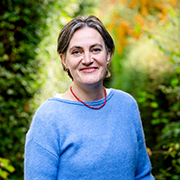Monitoring end-of-life care within Europe via general practitioners
Abstract project
Background
Since 2005, a nationwide mortality follow-back study has been running in Belgium and the Netherlands aimed at monitoring care patients receive during the last phase of life. To measure on a population-based level across patient groups and care settings, a collaboration was set up with the nationwide Sentinel Network of General Practitioners in both countries. These networks have proved to be a reliable surveillance system for a wide variety of health-related epidemiological data for several decades. As general practice is highly accessible for patients often until the very end of life in both Belgium and the Netherlands, the GP can provide a good public health perspective on end-of-life care and dying.
Methods
In both countries, the Sentinel Network of GPs covers annually between 1% and 2% of the total patient population and is representative of all GPs in the country in terms of age, sex and geographical distribution. The Belgian Scientific Institute of Public Health (IPH) and NIVEL (the Netherlands Institute of Health Services Research) acted as coordinators of the respective national Sentinel Networks.
All participating Sentinel GPs were asked to fill in a short registration form on the care the deceased received in the last phase of life. This was done for all patients of the GP’s practice aged one year or more at the time of death. Over subsequent registration years different aspects of end-of-life care and the dying process were covered.
In 2009, Italy joined the SentiMelc study group, as did Spain in 2010, and the study group EUROSENTIMELC was born.
In these registration years, participating GPs reported on several aspects of how and in what circumstances patients die, such as place of care and death, care transitions and continuity of care, caregivers' involvement in patient care, quality of end-of-life care communication, quality of dying.

